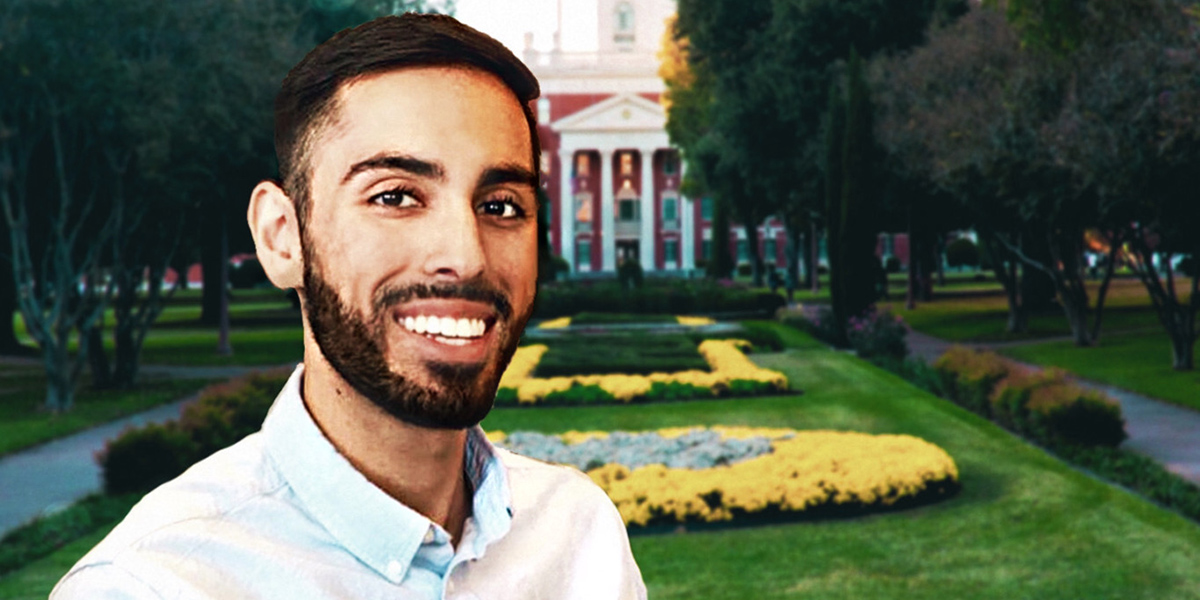A Baylor senior’s summer on a Texas COVID-19 response team

Countless Baylor Bears have spent the last few months on the front lines of COVID-19 — serving as doctors and nurses, researching vaccines, and more. Baylor senior Shiva Dhiman is one such Bear.
Dhiman, a public health major from San Jose, Calif., spent this summer interning with the Texas Department of State Health Services (DSHS), primarily serving on the COVID-19 Response Management Team in Region 8 (south central Texas, including San Antonio). We spoke with him last week to learn about his hands-on experience working with the pandemic at the state level.
What led you to Baylor to pursue a career in public health?
“It’s funny, because I chose Baylor without visiting campus a single time. I just had a feeling in my gut it was the best place for me. I changed my major a few times during my freshman and sophomore year, and nothing really stuck, so I elected to spend some time away from school and returned home to San Jose. During this time, I landed an internship with my county’s health department, and it was such a transformative experience. This experience and my current internship have been instrumental in my development as an aspiring health legislator and hopeful executive at the CDC one day. I knew I needed to return to Baylor to complete my ‘comeback’ story.”
Now, you’re working with the Texas Department of State Health Services. What’s that experience been like?
“My time with the Texas DSHS has been a whirlwind of emotions — I’m learning so much. I’ve spent a lot of time contact tracing and case investigating. These procedures are so important when trying to slow the spread of the virus. We can determine where the person could have contracted the virus and who that person may have infected. This data can identify potential outbreak sites, as well as educate about current trends. Additionally, I’m helping our leadership team develop a plan for daycares and schools.”
What else have you learned that could help slow the virus?
“Simple, effective things would truly make all the difference, like wearing a mask, washing your hands, and socially distancing — reducing the time we spend in places where people tend to crowd, such as grocery stores, restaurants and movie theaters.”
What does the future of Texas look like in terms of COVID?
“I’d say uncertain, but hopeful. Uncertain, in the sense that we’re not only expecting to experience a rise in cases due to schools opening, but we also will likely see issues arise regarding distribution of vaccines. For example, who gets the vaccine first? Do all hospitals get the same amount? What about rural clinics that aren’t located near major cities or highly populated areas?
“On a brighter note, we’re seeing vaccines pass through various phases of clinical trials and slowly but surely ascend to human trials — something that we could not have imagined back in February and March. That’s the beauty of science. I’d also like to note that it’s never too early to begin discussing the mental health impacts that COVID-19 has not only individuals, but us as a nation.”
How has Baylor prepared you to go out into the workforce?
“I’ve found great success in the classroom and extracurricular activities. I’m fortunate enough to learn from so many different professors who have exceptional experience and who continuously support my ambitions. There are an overwhelming amount of brilliant and passionate individuals working in our state and country to help their constituency. Because of Baylor, I will soon be one of them. Eventually, I hope to be at the forefront of policy and decision making for the United States.”
Sic ’em, Shiva!

